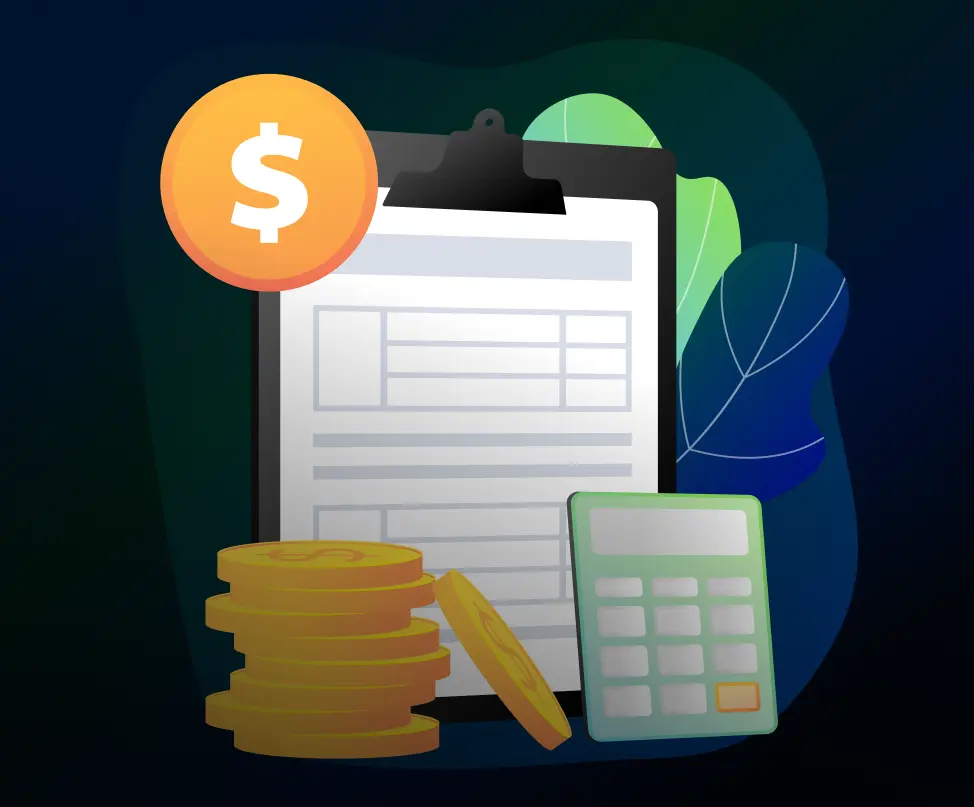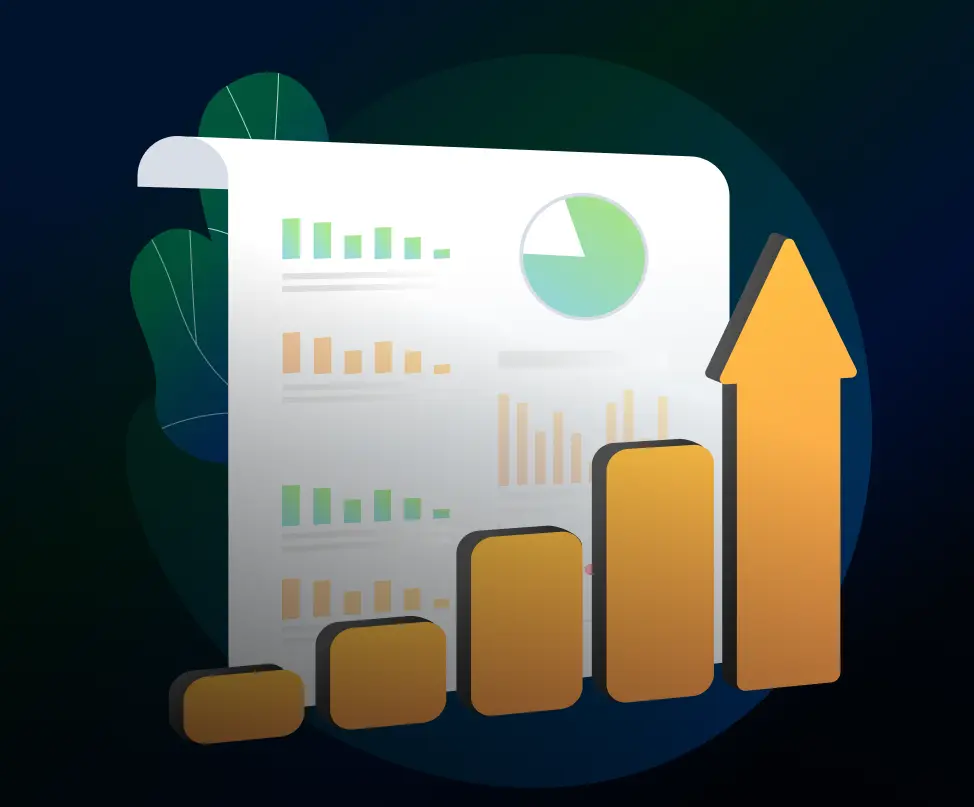A Trader's Outlook: 8 Factors to Consider Before Choosing Trading Platform Software
- Introduction
- Know Your Needs
- Conduct Your Research
- Explore Customization Options
- Consider Security and Reliability
- Engage Customer Support
- Think Through Cost and Budgeting
- Implement User-friendly Interface
- Support Industry Reputation
- Final Thoughts
- FAQs
Introduction
Trading has never been so accessible as it is today. Several trading platform software have been developed to trade even from our mobile devices, hence the need to choose the right platform. The choice of a trading platform plays an essential role in determining the success or failure of a trader.
For example, opting for a platform with a complicated interface can impede a trader’s activity. Trading software known for its user-friendly features can aid a trader’s success by allowing him to make well-informed decisions and navigate the market effectively.
For brokerage business owners or those who are just planning to launch their own brokerage business, it would be very beneficial to look at this problem through the eyes of the end client. There are several things a trader needs to know before settling for a trading platform.

Know Your Needs
A trader's needs will vary depending on their goals or level in their trading journey. It is essential to point out these needs so that they can align with the trading platform of choice.
For example, a beginner may prioritize essential educational resources, easy access to support staff, and the ability to place practice trades before playing with real money.
In contrast, an experienced trader may prioritize advanced charting capabilities, conditional order options, and the ability to trade derivatives, mutual funds, stocks, or commodities.
The key is to be honest with yourself . One can ask the following questions to help determine these needs
What kind of trades do you plan to execute? Are you the kind of trader who knows precisely what to do, or are you looking to work with a platform that provides support to walk you through the journey? What kind of securities do you want to trade? Is it stocks, mutual funds, or commodities? Whatever your options are, be willing to point them out.
What are your investing goals? This is a crucial question as it helps shed light on your target for your trading journey, which is instrumental to choosing the right platform. Why are you deciding to trade? Do you intend for this to become your primary source of income?
Are you an active or passive investor? It is also essential to answer this question depending on the amount you are willing to spend on trading.
Do you want to execute day or swing trades? Do you see yourself quitting your job to be a full-time trader? Or do you want to find a few solid investments to hold with little or no day-to-day interaction?
There are no wrong answers to these questions. Be honest about how much time, effort, and energy you're willing and able to put into your trading. Your answers may change over time, and that’s fine. Allow yourself to be flexible and adaptable to change.
Conduct Your Research
Before you choose a trading platform software, it is crucial to research to understand the options under each trading platform that are available to you. Depending on your needs, you can carefully evaluate these options and choose the ones most suitable for you.
To conduct your research effectively, here are a few things you can do:
- Compile a list of potential platforms that align with your identified needs.
- Compare the features, performance, and customer reviews of each platform.
- Look at essential factors such as order execution speed, charting capabilities, reliability, and available asset classes.
- Customer reviews and ratings offer valuable insights into the user experience, helping you gauge the platform's reputation.
Explore customization options
Selecting a trading platform software with a keen eye for customization can significantly enhance your trading experience. You can adapt the interface and features to match your unique trading style by choosing a platform that offers customization options tailored to your needs.
With these tailored adjustments, you can make informed decisions about your trades while enjoying a trading environment that fits you like a glove. In addition, the peace of mind that comes with a reliable and secure platform ensures that your account is protected, allowing you to focus on your trading strategies confidently.
Security and Reliability
Security is an important consideration, as a trading platform must offer robust protective measures such as two-factor authentication, encryption, and firewalls to protect personal and financial information, preventing potential cyber threats.
Review the platform's security and privacy policies, terms of service, and client fund protection measures. Also, look out for transparent and comprehensive documentation in these areas.
Regarding reliability, dependable trading platform software ensures seamless and efficient trade execution, preventing disruptions that could result in missed opportunities. It is not just about smooth trading. Reliability also translates into the availability of features and tools that aid in informed decision-making and effective trade execution.
In addition, reputable platforms go the extra mile by providing round-the-clock customer support and offering assistance whenever needed. Take your time to look into these factors when conducting your research.
Customer Support
In the world of trading, accessible and practical customer support is a cornerstone for success. A reliable trading platform software must provide 24/7 customer support to help traders resolve issues and inquiries promptly.
When evaluating a platform, scrutinize the quality and availability of its support services. Seek out platforms offering responsive and knowledgeable customer support through live chat, email, or phone channels. Trading operates daily, so selecting a platform with accessible phone, email, and live chat support is pivotal
In the dynamic trading landscape, responsive assistance can be the differentiator, ensuring your trading journey is smooth and successful.
Cost and Budgeting
Your budget is another essential factor to consider when selecting a trading platform software provider. This will also vary depending on your needs and trading style. Compare the pricing and fees among different platforms, considering trading commissions, spreads, deposit and withdrawal fees, and inactivity fees.
Balance these fees with your trading style, the volume of your trades, and your budget constraints. Understanding how pricing models and fees vary is essential, ensuring you make financially sound choices aligned with your trading objectives.
User-friendly Interface
Selecting a trading platform software with an intuitive user interface is paramount for an enhanced trading experience. It should be both easy to use and beginner-friendly. Consider it a bonus if the platform provides educational materials like video tutorials to help you get started. An intuitive interface positions critical analysis tools within easy reach, enabling swift action on open positions.
Also, the platform's speed is crucial. It should operate seamlessly to avoid network data issues impacting trade execution. A user-friendly interface facilitates efficient navigation, order placement, and access to vital trading information. Check out these features when choosing a trading platform.
Industry Reputation
The industry's reputation is a critical factor to consider when choosing a trading platform software because it serves as a litmus test for their past performance and the satisfaction of their clients. Pay attention to client testimonials and reviews to gauge a provider's reputation. Seek feedback from experienced traders who have first-hand experience with the platform.
Additionally, research the provider's history and track record in the industry. Scrutinizing these aspects is pivotal to making an informed decision. A provider with a sterling reputation is likelier to offer a reliable and trustworthy trading experience
By being vigilant about the provider's reputation, you can safeguard your trading journey and set the stage for success.
Soft-FX, for example, has been providing solutions in the trading industry since 2005; hence, our TickTrader trading platform can be considered a good choice for your trading needs.
Soft-FX has been building solutions in the trading industry since 2005. We are ready to provide a detailed advice about the TickTrader Trading Platform and how it can satisfy the needs of your end clients.
Final Thoughts
When choosing a trading platform software, taking the above factors seriously is vital. This is true whether you are just beginning as a trader or have already established yourself in the market. It is essential first to identify your needs and conduct good research to ensure that a trading platform perfectly aligns with your preferences.
The TickTrader trading platform software, a popular alternative to other trading platforms, offers high-quality products and services with an intuitive, user-friendly interface, security, reliability, and customer support. Contact us if you’d like a consultation.
FAQs
Q1: What should I consider when choosing a trading platform software provider?
Some of the factors to consider when choosing a trading platform software are:
- Your needs: What are your needs and goals for trading? This question must be answered before you research to determine the trading platform that will suit those needs.
- Security and Reliability: When selecting a trading platform, you must ensure that the platform is safe and secured from cyber attacks. To understand this, check information such as the platform's security and privacy policies, terms of service, and client fund protection measures.
- User-friendly interface and customer support: You should also consider the platform's interface. A trading platform should be intuitive and easy to navigate. Additionally, customer support should be available to respond to queries, issues, or inquiries from customers.
Q2: What should I look for in a user-friendly interface?
A user-friendly interface should be easy to use and beginner-friendly. It should also be intuitive and easy to navigate efficiently without too much support.
Q3: How can I determine a provider’s industry reputation?
One way to assess a provider’s industry reputation is to research the company's history and track record. Pay attention to client testimonials and reviews and seek feedback from experienced traders with first-hand experience with the platform.



